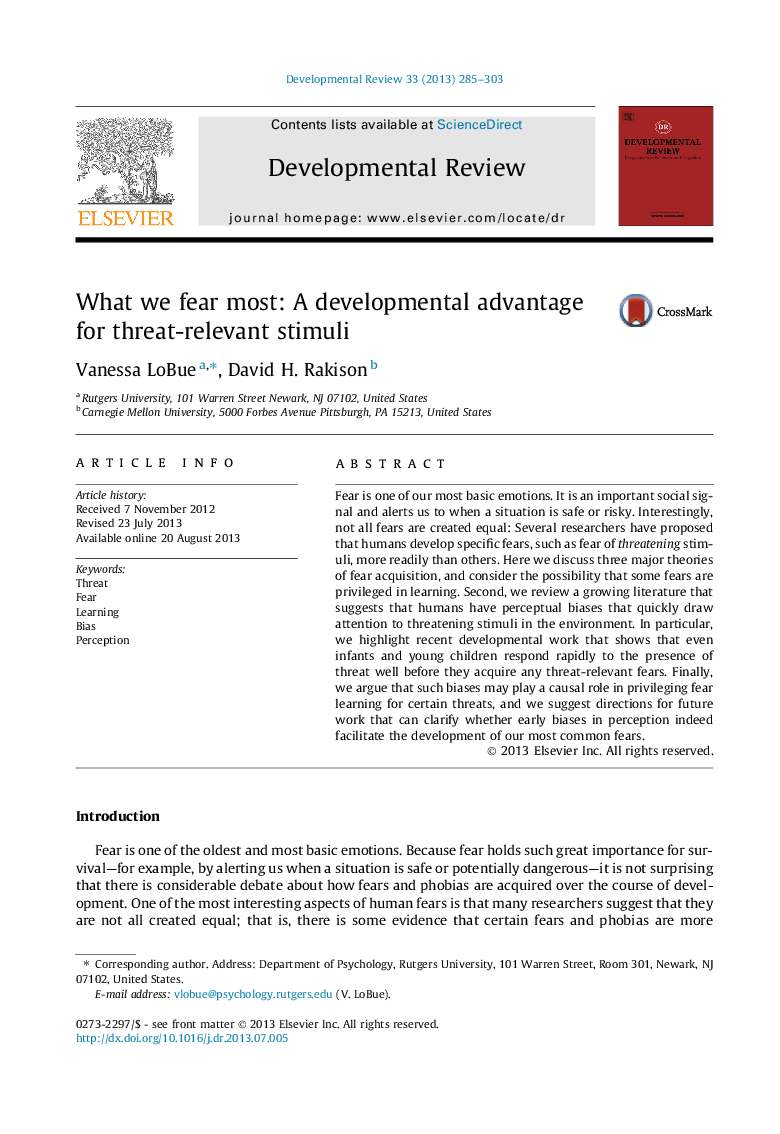| Article ID | Journal | Published Year | Pages | File Type |
|---|---|---|---|---|
| 353453 | Developmental Review | 2013 | 19 Pages |
•Fear is one of our most basic emotions, and serves as an important social signal.•Some fears are more likely to develop than others.•Fears of threats, like snakes and spiders, are the most common.•Research suggests that many of these threats are privileged in human perception.•These biases are present early in development and may guide rapid fear learning.
Fear is one of our most basic emotions. It is an important social signal and alerts us to when a situation is safe or risky. Interestingly, not all fears are created equal: Several researchers have proposed that humans develop specific fears, such as fear of threatening stimuli, more readily than others. Here we discuss three major theories of fear acquisition, and consider the possibility that some fears are privileged in learning. Second, we review a growing literature that suggests that humans have perceptual biases that quickly draw attention to threatening stimuli in the environment. In particular, we highlight recent developmental work that shows that even infants and young children respond rapidly to the presence of threat well before they acquire any threat-relevant fears. Finally, we argue that such biases may play a causal role in privileging fear learning for certain threats, and we suggest directions for future work that can clarify whether early biases in perception indeed facilitate the development of our most common fears.
